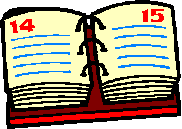Session 3
- Education Portals & Search Strategies
 |
Let's begin by signing on to My UEN ...... |
 |
|
|
 Roll Today: Please
send me the URL from your My UEN page. (I'd like to
incorporate your URL's into our class syllabus web site). Roll Today: Please
send me the URL from your My UEN page. (I'd like to
incorporate your URL's into our class syllabus web site).
Directions:
 Activity 1 - Rubric Maker (1/2 hour) Activity 1 - Rubric Maker (1/2 hour)
- Form a small group with others in your row and begin by
familiarizing yourself with rubrics
http://www.uen.org/rubric/html/tutorial/ (from that link
select "What is," then select "Browse). The object is to
understand or review what rubrics are and how they are being used
in your specialty area.
- Examine the Rubric Tool
http://www.uen.org/rubric/html/tutorial/ (select
tutorial and click through how to construct one by selecting the
words or the arrow)
- From the Rubric Tool page
http://www.uen.org/rubric/ select "Create" and experiment with
the tool by editing a rubric of your choice.
- Discuss with others in your group and select individuals to
respond to our large group discussion:
- What types of rubrics are available in your teaching
specialty?
- What are the features of this tool, including: print, share,
edit, and delete?
- What is the intended use of this tool?
- How do you link rubrics you have developed or edited to a
Lesson Plan you have created?
- How could teachers use this tool creatively in their
classrooms?
Activity 2 - Search Engines for Teachers and Students (1 hour)
 With
others in your small group, you will explore a variety of sites that
deal with searching the WWW. Each group should choose a facilitator,
a reporter (or reporter for specific questions), and everyone should
serve as a researcher. Each member of the group should participate
in answering questions in Set 1, Set 2, and Set 3. With
others in your small group, you will explore a variety of sites that
deal with searching the WWW. Each group should choose a facilitator,
a reporter (or reporter for specific questions), and everyone should
serve as a researcher. Each member of the group should participate
in answering questions in Set 1, Set 2, and Set 3.
Questions:
I. Set 1 - What are search engines and how do they work?
When would you use different types of search engines? What are
some effective search strategies?
- How do search engines work?
- What's the difference between a search engine and a meta
search engine? When would you use each?
- What's a subject directory? When would you use one?
- What are library gateways/specialized databases? When
would you use them?
- How do you plan an effective search? What are some
valuable search tips to keep in mind?
II. Set 2 - What's the buzz about search engines?
Are all search engines created equal?
- From this list of links, your group should be prepared to
share one interesting fact about search engines.
III. Set 3 - What are some appropriate search engines
for students? What are some resources for teaching searching
to students?
- From this list of links, your group should be prepared to
share an important tip you've learned about search engines for
students or helping them to search effectively.
 Activity
3 - The Best of the Web for Teachers (1 hour) Activity
3 - The Best of the Web for Teachers (1 hour)
Strategies for locating web sites in your teaching specialty
include searching:
- Books listing web sites by specialty area (examples)
- Journals
- Professional organization's web sites (NCTM, NCTE, ASCD, etc.)
- Search engines (Google, Yahoo, etc.)
- Education Portals
With others in your small group, you will explore a variety of
education portals. Each group should choose a facilitator, a
reporter (or reporter for specific questions), and everyone should
serve as a researcher. From this list of links, your group should be
prepared to discuss: a) types of resources available on education
portals, b) how portals differ and types of features that you found
to be useful, c) your picks for "best portal" overall and in your
various teaching specialties.
Discussion of Projects -- I have been responding to your
emails re: your individual projects and your professional
development activity. You will receive feedback within the
next few days.
Discussion Forum Questions -- I will be reading and
responding to your answers on the Discussion Forum on CourseCompass
within the next few days. Please check the Discussion Forum
for feedback on your responses.
 Review of Assignments for Next Session
Review of Assignments for Next Session
|


|